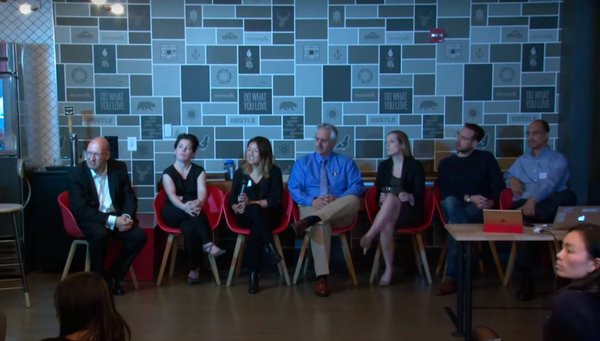Micro-Credentials — the BadgeOne XBlock and Server, developed in 2014-2015 by the George Washington University (GW) and IBL Education with the support of edX.
The badges can be awarded
from graded sub-sections in a course in Open edX. The instructor sets the minimum score for the eligibility of the badge and configures the badge component with the data of the badge service, the badge ID, and custom messages for the user at the sub-section (or sub-module) level. There is
no limit on the number of badges that can be earned within a course.
In November 2014, GW Professor Lorena Barba published a
slide deck describing the concept and instructional design for her course,
“Practical Numerical Methods with Python.” She described her proposal of
“unbundling the course,” as follows:
“Instead of awarding one Certificate of Completion for the whole course, we want to award digital badges for the completion of each individual module.” The course is composed of five modules, each with a graded sub-section and awarded with an open badge. The image of the open digital
badge awarded for Module 1 of the course is available for re-use under CC-BY, as an example.
Resulting from the work by
Prof. Barba and IBL in 2014, edX itself contracted IBL to complete a follow-on project to produce the
Badge One server. Combined with the XBlock, this was the first complete solution to award open badges from a graded sub-section in Open edX.
Anant Agarwal, CEO of edX,
enthusiastically supported this badge development. Since then, the George Washington University
has been consistently using badges in their engineering courses, awarding
over 300 badges. The
“Practical Numerical Methods with Python” course has been the reference in this field.
IBL:
A New XBlock to Award Badges After an Assessment in the CourseIBL:
Two Universities Launch Badges on their Open edX PlatformsIBL:
The First XBlock that Allows Badges on Open edX is Released 
